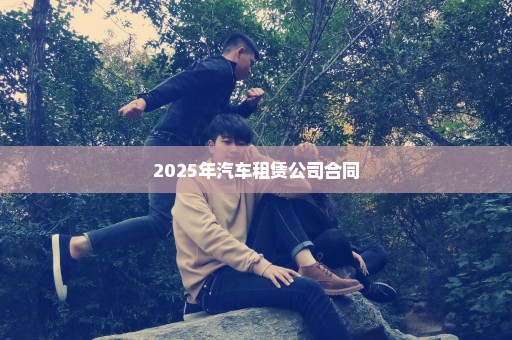新概念英语第二册第四课课文详解
一、本课生词和短语
1、exciting adj. 令人兴奋的
excite:激动
excited:
-ed: 自己感到
-ing:令人感到
exciting boy
interesting man
The man is interesting.
The news exciting,I am excited
其宾语一定是人
The news excited me.
让后面的人感到...
interesting:令人感到有趣的
interested: 感到有意思的
The book interests me.
2、receive v. 接受,收到
I have just received a letter from my brother, Tim.
我刚刚收到弟弟蒂姆的来信,
receive[ri5si:v]vt.收到, 接到, 接收(receive的过去式和过去分词是received)
re-前缀,表"又,重新"的意思。
Receive/ accept/和take的区别:
accept:同意接收
receive:客观的收到
take take the exam:接收考试; take advice接收建议
This morning I received a bunch of flowers from a boy,but I didn't accept
it.
take take the exam:接收考试; take advice接收建议
receive/have
receive/have a letter from somebody.
3、firm n. 商行,公司
Company
firm 主要用在非正式场合和口语,Company 是公司的正式称呼。
4、abroad adv. 在国外
副词,直接和动词连用
go aroad
live abroad
study abroad
5、so he is finding this trip very exciting.因此,他觉得这次旅行非常激动人心。
重点了解动词find:
find[faind]vt.找到, 发现, 感到, 查明, 得到, 认为, 见到...的存在vi.裁决n.发现
find 过去式和过去分词是found
读一读几个有find 的例句:
1. I think I'm lost; I can't find the bridge.

我想我是迷路了,我找不到那座桥了。
2. We have found oil under the North Sea.
我们在北海发现了石油。
3.find it difficult to explain
觉得难以说明
4. find a good friend in (sb.)
发现某人是个好朋友
习惯用语:
find out 发现, 找出; 猜着, 想出; 揭发(坏人等)
be found in 在某地, 到某地
be found at 在某地, 到某地
6、……he has already visited a great number of different places in Australia.
a great number of 不少的,多数的
great number of 接可数名词复数,例如:a great number of books, a great number of workers.
二、本文时态讲解
本课出现最多的是现在完成时态的用法,助动词have/has+动词的过去分词构成完成时态。它的否定句是在have/has后边加not,变一般疑问句是把have/has提前。E.g. I have ridden a horse. I have not ridden a horse. Have you ridden a horse?
它的时间状语通常为already, just, yet, ever, never, before等。另外还可和since+表过去的时间点,for+时间段连用。
课文中现在完成时态标志性的词语有:just, for six months,already,before, never .几乎将所有的标志性词语全部用上了。所以大家要好好背诵记忆。
在学习完成时态中,常常爱错的三个地方:
在现在完成时态中,1、易丢掉have/has:
例:He taken (take) the medicine before.
答案:has taken
解析:have/has 为助动词,起构成时态的作用,是不能省略的。我们可以这样记:
"现在完成时态中,have/has 不可缺。"
2、have与has易用混 :
例:I has never heard (hear) of that before.
答案:have heard
解析:现在完成时与一般现在时一样也有单三人称的变化,当单三人称作主语时用 has, 一般人称作主语时用have.
3、延续性动词与短暂性动词易弄错:
例:She has left (离开) for 2 hours.
答案:has been away
解析:在肯定句中,与since或for引出的时间状语连用的是延续性动词,不能是短暂性动词,但在否定句中短暂性动词也是可以的。E.g. I haven't bought clothes for one year. 在此题中leave是短暂性动词,不能与for+时间段连用,须把它改成相应的延续性动词。如stop be over等。此题中leave要改成be away。这两种词的转换是学习现在完成时需要注意的。
英语中现在完成时态与过去完成时态有什么区别?
区别就看他们有无两个表过去的时间,若有,就用过去完成时:
1.现在完成时表示过去发生某动作从过去一直持续到现在(将来还有可能继续下去)。常和for+时间段和since+时间点连用。
I have studied English for 3 years.( 从过去持续到现在)
I have taught here since I came here.( 主句的动作"教"从过去持续到现在),(记住:since(从……)从句的动作要用过去时,我们平时不是爱说"从过去"吗?)
2.过去完成时则主要体现过去发生的两动作的先后有别,表达的是"过去的过去",即比过去发生的某动作都还要"过去",两动作中先发生的就用过去完成时,后发生的则只用一般过去时。运用过去完成时的句子往往有两过去的时间或动作。
Mr Green had lived in New York for ten years before he came to China.("来"中国已过去,而先前"住"在纽约更过去!)
We had learned 1000 words by the end of last term.
("上期期末"已过去,而是在其前"学"的就更过去了!)
三、课文其他易混淆语法
have/has been to, have/has gone to 之间的区别:
文中原句:
He has been there for six months.has gone to Alice springs,
have/has been to强调的是"去过"某地,已经不在所说的地方,可以和次数(once,twice,three times)连用,还可以和never ,ever, just, before,so far,already等连用,但是不能和表示一段时间的短语连用(如:how long,for two days,since last week等)
have/has gone to表示"去了"某地,已经不在这里了,故不能和第一和第二人称连用,不能跟次数连用,不能和never,ever,before连用,还不能和一段时间连用。
Have/has been in 强调的是在某个地方停留的时间,要接一段时间。
动手练习:
-Mr Li isn't here. He_______Suzhou.
-What a good place!But I_____away from my hometown since I worked.
A has been to;have never been
B has gone to;havenever been
C has been to;didn't be
D has gone to;have never gone
excited和exciting的区别是什么?
exciting:adj.
令人兴奋的, 使人激动的
主语是物或事
e.g. This movie is so exciting.
这部**真让人兴奋、激动。
excited:adj.兴奋的:处于激动状态的;兴奋的;激昂的
主语为人较多
e.g. she's so excited about the upcoming holiday.
对于即将来到的假日,她兴奋不已。
还有一个词这里补充一下
excite
动词:使兴奋
用得频率也非常高
e.g. the odd noises excited our curiosity.
古怪的噪音激起了我们的好奇心
采纳我吧,谢谢你啦!
excited与exciting区别:
1、excited
形容词: ? 激发的;兴奋的,激动的;活跃的;受刺激的;
动词: ? 使兴奋( excite的过去式和过去分词);
[例句]I'm very?excited?about the possibility of playing for England's first?team
想到可能为英格兰首屈一指的球队效力,我非常兴奋。
2、exciting
形容词: ?使人兴奋的,令人激动的;
动词: ? 刺激(excite的现在分词);
[例句]The race itself is very?exciting
比赛本身非常刺激。
两者都是形容词,但用法不一样excited是兴奋的,激动的,而exciting是使人激动的,令人兴奋的,excited修饰人或带有拟人手法的物,exciting修饰物 。
鹏仔微信 15129739599 鹏仔QQ344225443 鹏仔前端 pjxi.com 共享博客 sharedbk.com
图片声明:本站部分配图来自网络。本站只作为美观性配图使用,无任何非法侵犯第三方意图,一切解释权归图片著作权方,本站不承担任何责任。如有恶意碰瓷者,必当奉陪到底严惩不贷!
 百科狗
百科狗



